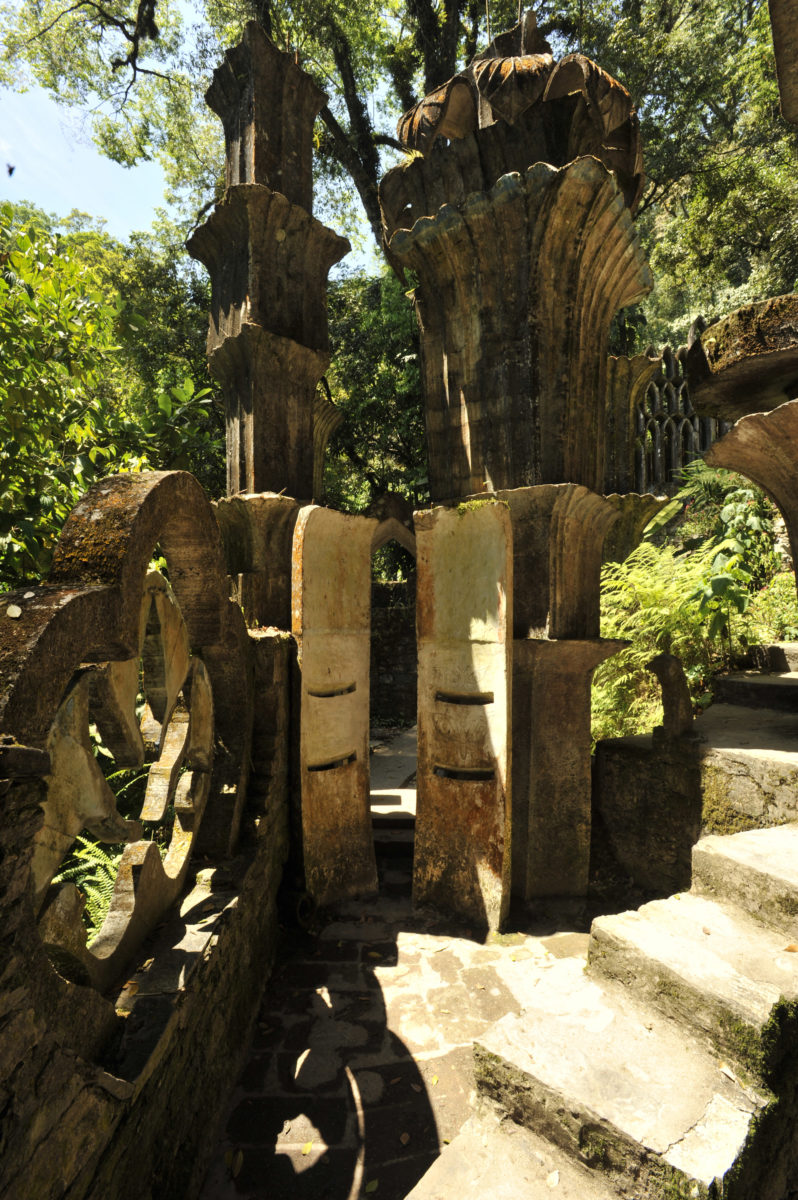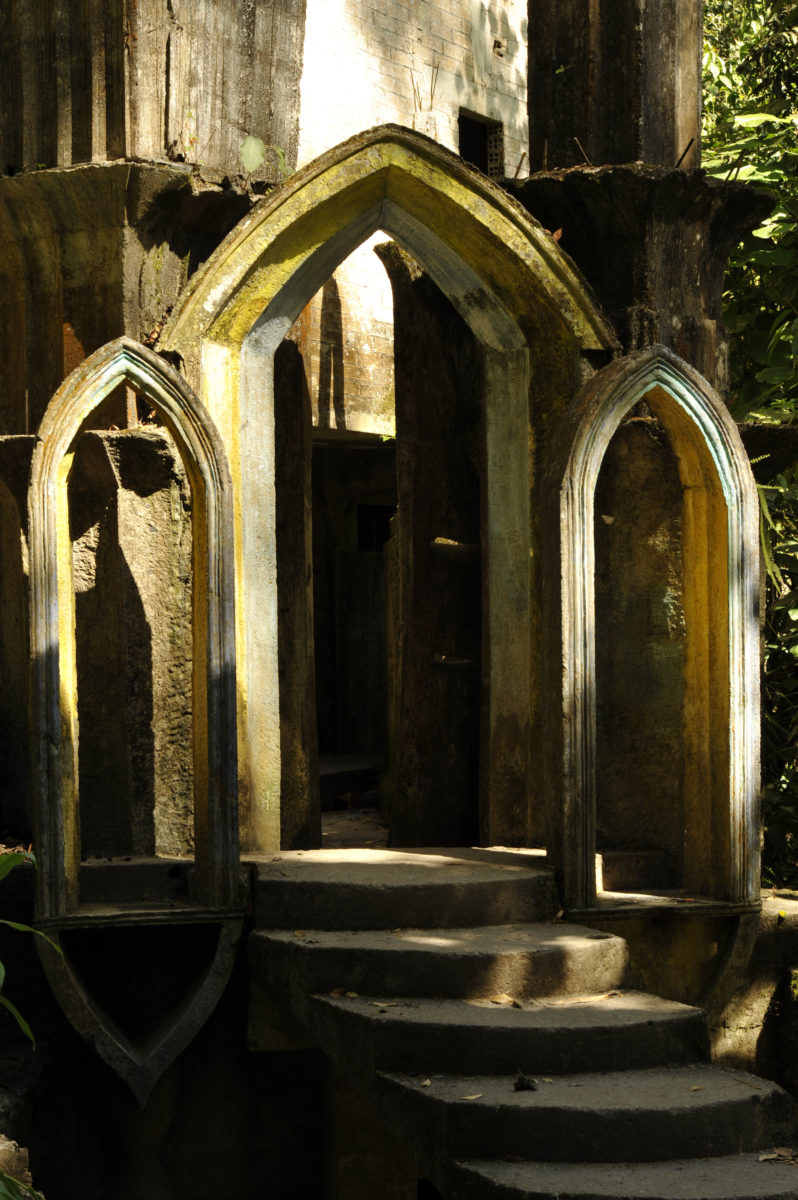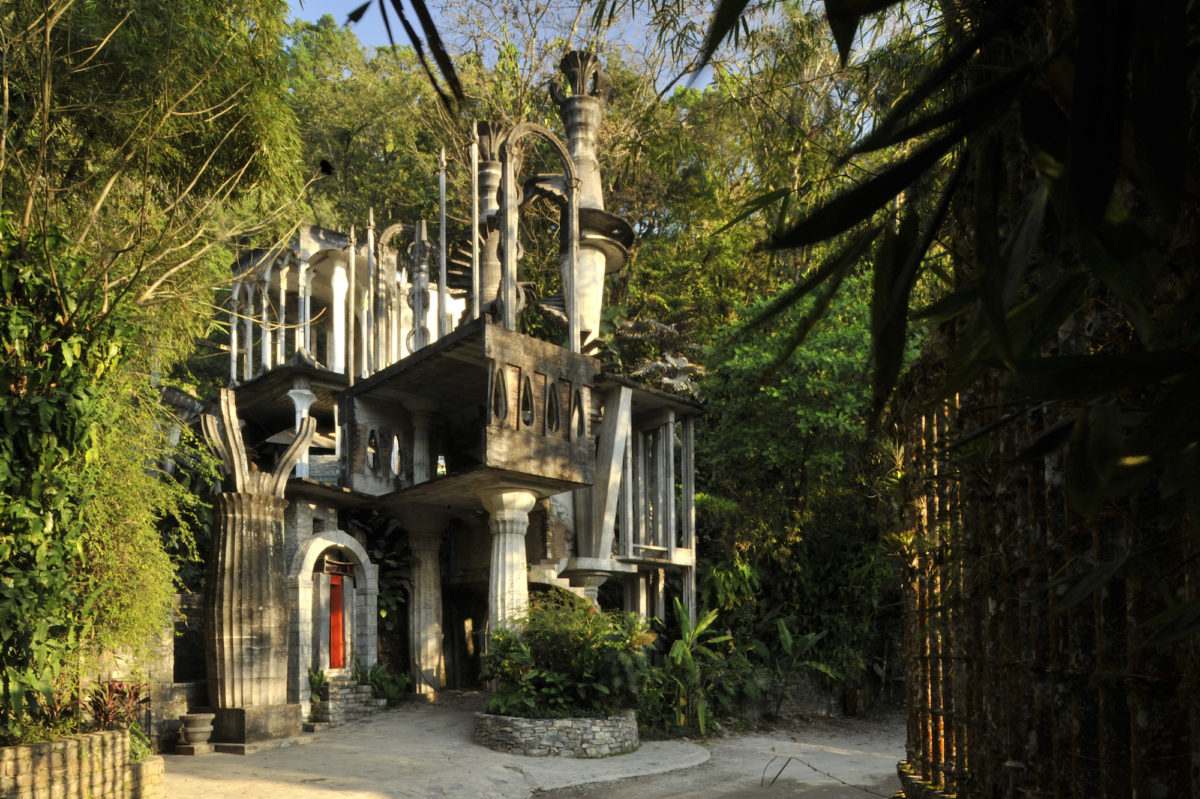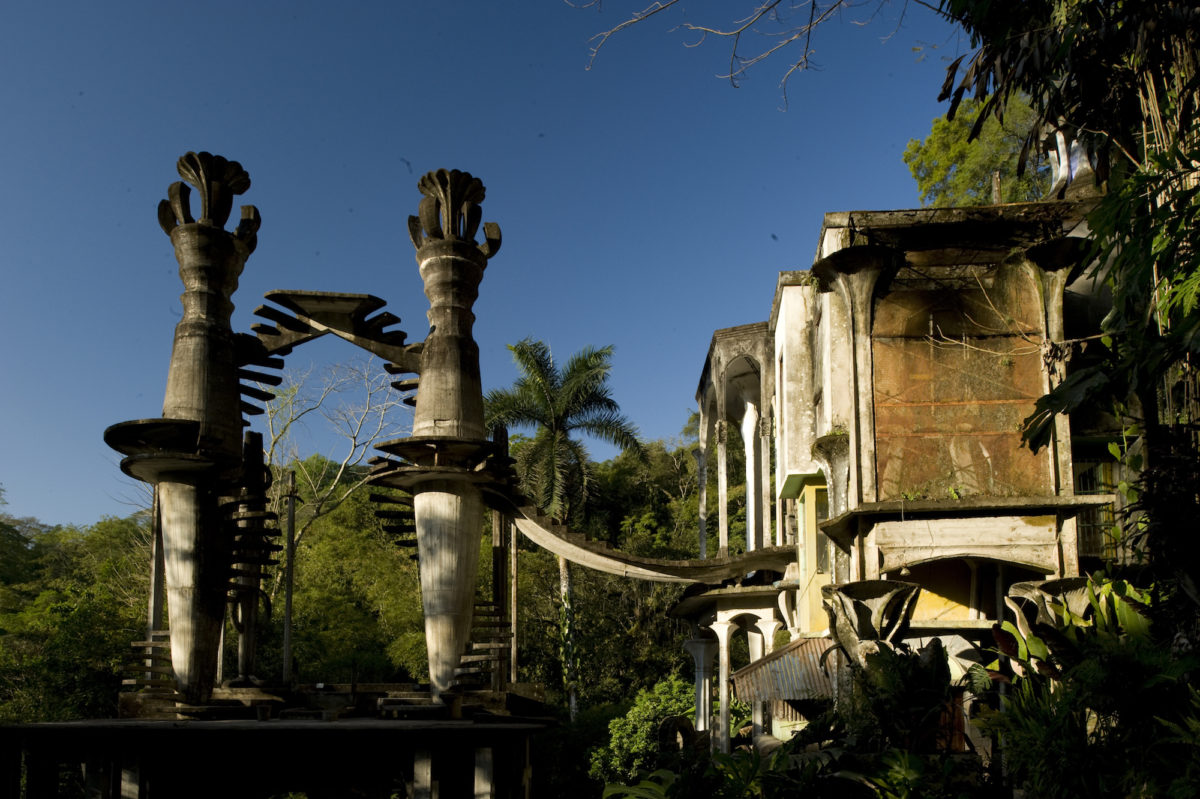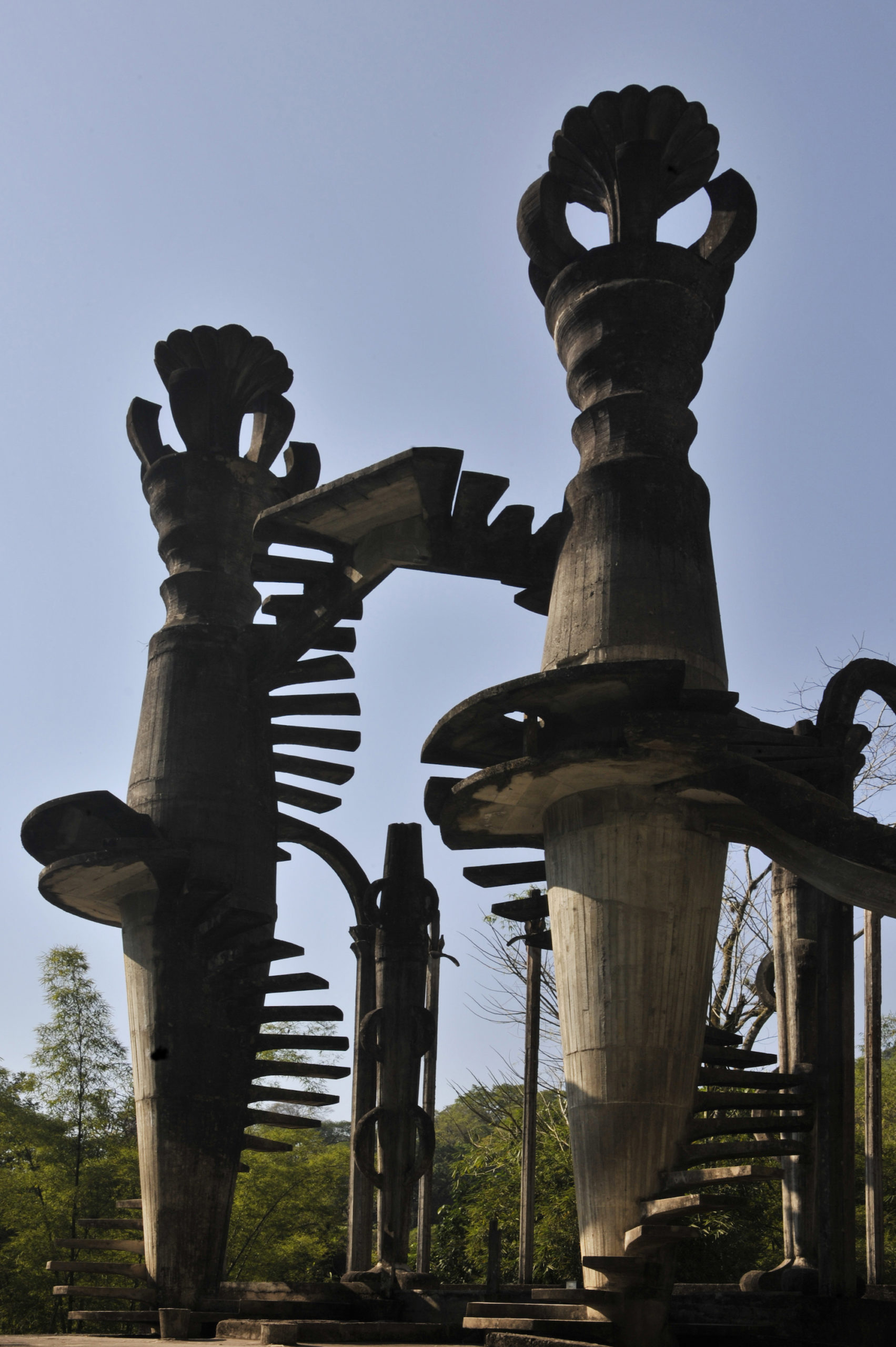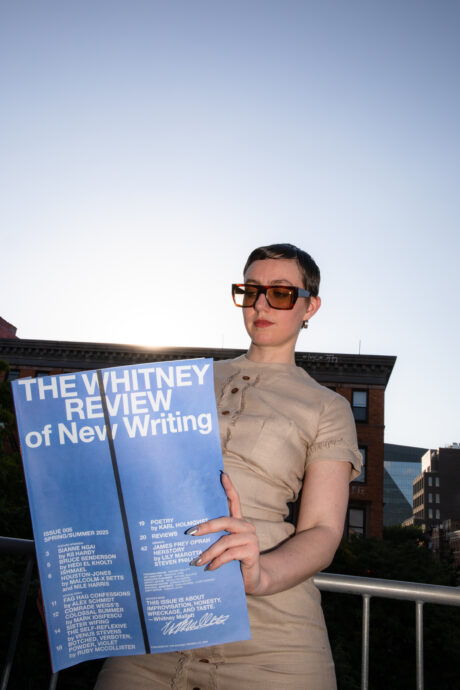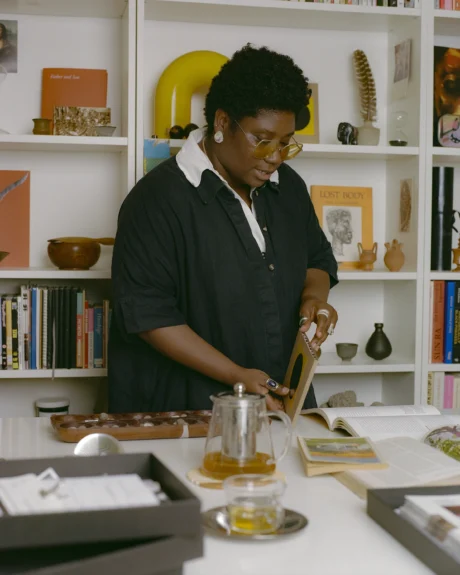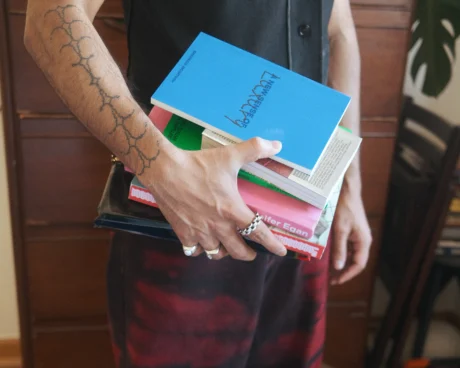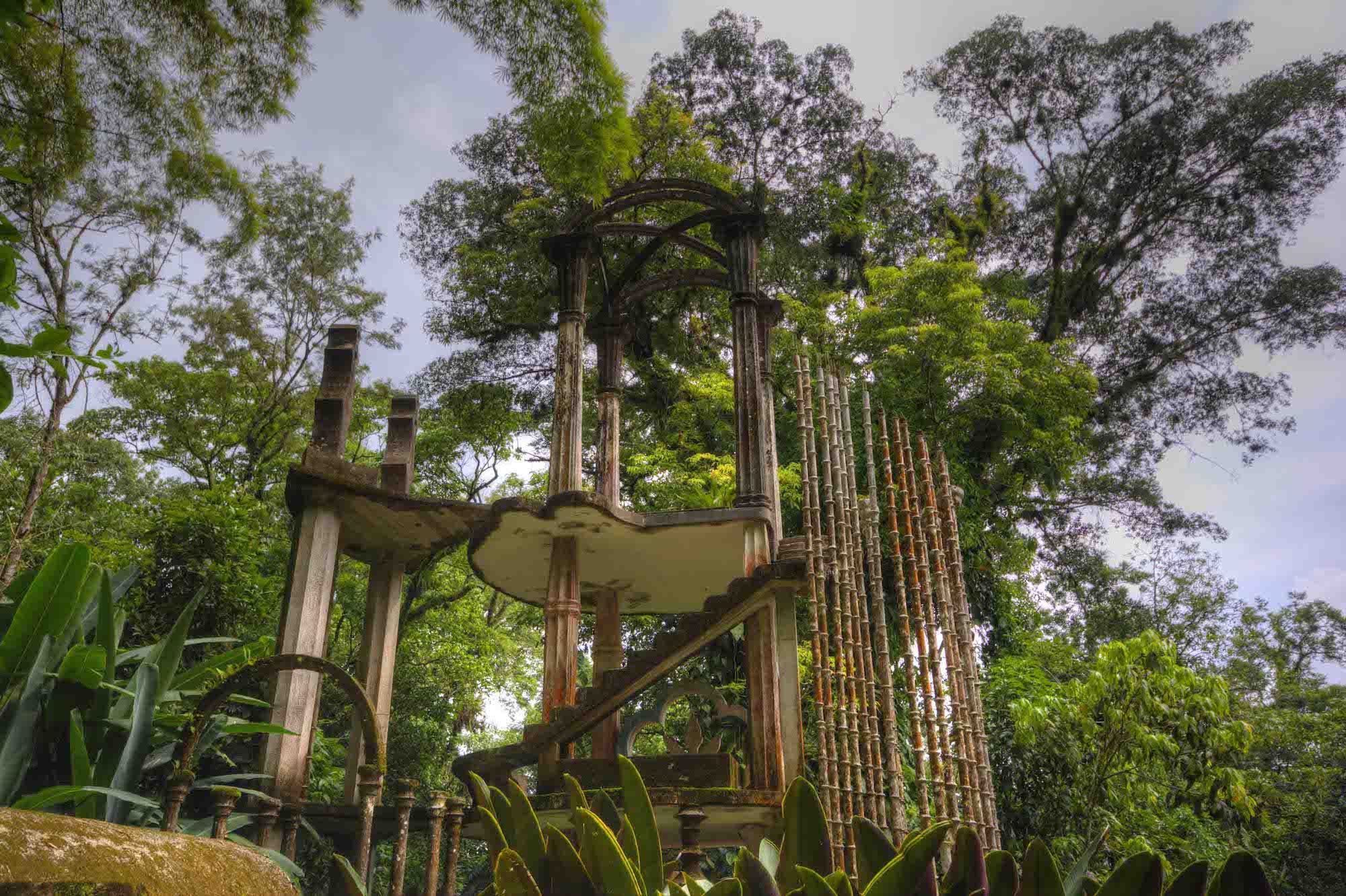
What
Entering Las Pozas (“the Wells“), you’d be forgiven for thinking you’d stepped into the background of a Surrealist painting. And, in a sense, you have. Created between 1949 and 1984 by the poet and art patron Edward James, Las Pozas is a wonderland of the subconscious, hidden deep within the rainforest. James bought the 80-acre plot of land to cultivate his own Garden of Eden, a refuge from the recriminations of the outside world, and planted tens of thousands of orchids while collecting a menagerie of exotic beasts.
A freak blizzard in 1962, however, led him to seek more permanent flora. And so he set about designing and constructing enormous concrete structures. Stalking the winding pathways of James’ private paradise, you’ll find giant hands emerging out of the earth, rows of gothic archways, spiral staircases to nowhere and four-story architectural fantasias, all set around natural springs and waterfalls.
Who
James might seem the quintessential English eccentric, although he achieved far more than most of those afforded that epithet. He was born in 1907 to an adventurer father and a socialite mother, and rumoured to be the product of an affair with the Prince of Wales. Aged five, he inherited a massive Jacobean pile in Sussex, and he spent his youth going through the educational signifiers of wealth: Eton, Rosey, Oxford. An attempt at a diplomatic career stalled after he accidentally reported that Italy was building 300 rather than three naval destroyers, and James devoted much of his adult life to art and pleasure. Bisexual, he married the famous Austrian dancer Tilly Losch, and went so far as to commission Brecht and Weill to create a whole ballet to showcase her talents. Their relationship ended in acrimony.
In the aftermath he became an enthusiastic early patron of Surrealism. He financially supported Magritte and Dalí, and saved the latter’s life from suffocation via diving suit. Dalí described him as “crazier than all the Surrealists combined.” He transformed his residence Monkton House into a Surrealist fantasia, with the famed Mae West sofa and Lobster phone. Then, in 1939, he travelled to the US, beginning his fateful journey to Mexico.
Where
After James arrived at Xilita with his guide and collaborator Plutaco Gastélum Esquer, the pair found themselves surrounded by butterflies after a morning dip. Interpreting this is a sign, he promptly bought land from a coffee planation outside the city and set about creating his horticultural masterwork. Over half a century later, it’s not hard to see why James stopped here. Xilitla is the core of an area dotted with tiny villages, many populated by the indigenous Huatesca peoples. Around eight hours drive north of Mexico City in the Sierra Madre mountains, it is a rugged, remote upload characterised by rainforest, spring waters and the country’s most astonishing diversity of flora and fauna.
Nearby landmarks include the Sótano de las Golandrinas, a 372-metre deep home to hundreds of birds, which fly out every morning and return each night. James was not the only artist captivated by the area: fellow British expatriate Leonora Carrington, of whom James was a keen supporter, would often travel from the capital to visit Las Pozas, where she painted murals. Since 2018, a museum of her sculptures in Xilitla has made this connection more visible.
Why
From the poetic pavilions of Suzhou to the monster-filled grottos of Bomarzo, gardens have long been places where fantasy and reality collide. Resembling at once a long-lost ancient city, a Jungle Book return to nature and a prelapsarian paradise, Las Pozas takes this to extremes. Looking like almost nowhere else in the world, James’ masterpiece (which is now preserved by the Pedro y Elena Hernandez Foundation) represents a Fitzcarraldo-esque attempt to grant concrete form to the dreams of Surrealism. It also offers a fascinating tension between the natural world and human endeavour. Although James’ garden harmonises with the existing rainforest, it is also endangered by it, as vegetation grows to encompass sculptures and rain infiltrates structures. And, if all this weren’t enough, you can also bathe in the eponymous pools.
All images © Amanda Holmes
